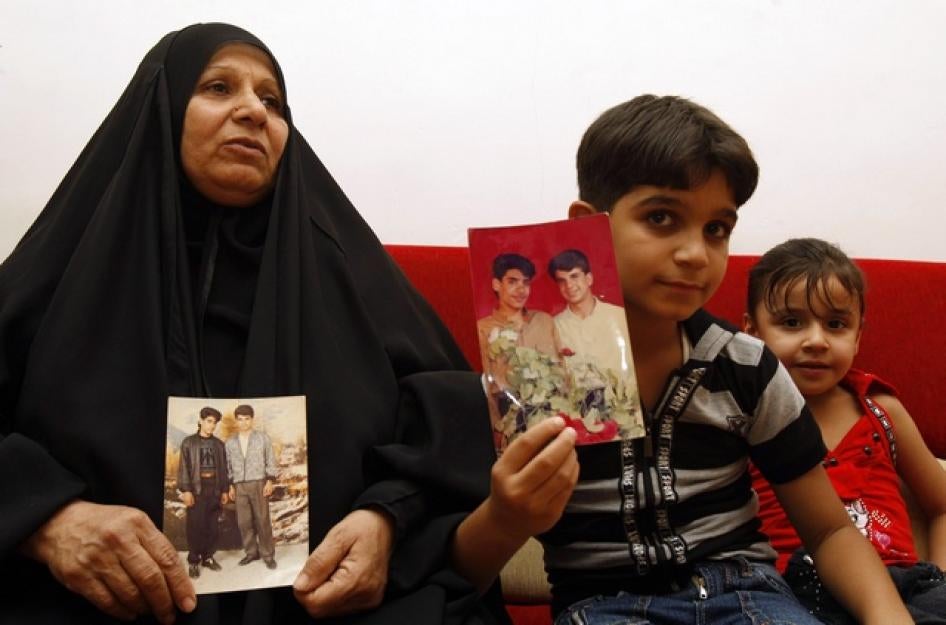The centenary of the Amritsar Massacre has seen Theresa May express her ‘deep regret.’ One of her ministers said that the UK had learned lessons and ‘everything we do today is to try to prevent such tragedies occurring again’. But when it comes to dealing with current allegations of war crimes by British forces, this government, like its predecessors, still struggles to acknowledge the severity of the crimes, let alone permit prosecutions of those responsible.
The 13th of April, 1919 is one of the most infamous days in the history of the British Empire. Thousands of people had gathered in an open space in Amritsar, India called the Jallianwala Bagh. Some were protesting against a repressive new law that permitted detention without trial. Others were in the city for a Sikh festival. The peaceful crowd included many children. What happened next has been well documented by inquiries and historians.
British Indian Army Brig.-Gen. Reginald Dyer, who had issued an order that morning banning any public meetings following earlier riots, arrived with a contingent of soldiers. He immediately gave an order to open fire on the crowd, without warning. His forces killed hundreds of people, including children. Dyer then marched his troops back to their barracks, not stopping to look after the hundreds of wounded.
The outrage in India forced the British colonial government to set up a public inquiry. The inquiry criticized Dyer, but the Indian members of the commission pointed out that blame went much further than one man. The British authorities, however, put the blame fully on Dyer, forcing him to resign and leave India.
But some in the British media and political establishment publicly defended a ‘hero’ they felt had been unfairly treated. A popular newspaper, the Morning Post, launched an appeal for ‘The Man Who Saved India’, raising a small fortune that Dyer used to buy a home for his retirement. The House of Lords voted that Dyer’s treatment had been ‘unjust’ and ‘dangerous to the preservation of order’ (the House of Commons had supported the general’s censure). Neither Dyer nor anyone else involved was prosecuted. When Dyer died in 1927 he had a hero’s funeral.
One hundred years on, not much seems to have changed. Sixteen years after the British invasion and occupation of southern Iraq, we still don’t know the whole truth about the hundreds of allegations of abuse of detainees, many of which could amount to war crimes.
Under pressure, UK governments agreed to several public inquiries that found evidence of serious and repeated abuse of detainees, including the beating death of a hotel receptionist, Baha Mousa, in 2003. One inquiry found allegations of the murder of prisoners to be false but still found systematic abuse of detainees. A UK court, after hearing evidence in claims for damages, found that Iraqis had been systematically abused in British detention. The Ministry of Defence has paid out millions of pounds in damages to hundreds of other Iraqis who claimed they had been abused.
But only one British soldier, a Corporal Payne, has been convicted of war crimes in Iraq, serving one year in prison for his involvement in the death of Baha Mousa. As after Amritsar, parts of the British media have run campaigns denouncing any criminal investigations into ‘heroes’, with the support of some MPs. The previous defence secretary did as they asked and shut down the criminal investigation into alleged war crimes in Iraq before it had completed its work.
A residual body is now tasked with examining the remaining abuse allegations. Although ministers could be criminally liable for war crimes under the principle of command responsibility, the authorities haven’t opened a single investigation into the possible criminal liability of government ministers for war crimes in Iraq. Even though a public inquiry found that serious crimes took place, none of those who may be most responsible have been prosecuted.
The current defence secretary, Gavin Williamson, would go even further. He not only condemned criminal investigations into members of the armed forces, but proposed a new law that would require a cabinet minister to approve any such prosecutions and would protect members of the armed forces from prosecution after 10 years. This would appear to violate the international law prohibition on time limits for war crimes prosecutions and to undermine the justice system’s independence.
The Amritsar Massacre was a clear example of the British state blocking accountability for the worst crimes. If the British government truly wishes to commemorate its memory it should scrap its proposals aimed at preventing justice for war crimes and ensure there is full criminal accountability, for any UK citizen up to the most senior level, responsible for war crimes in Iraq and elsewhere.










